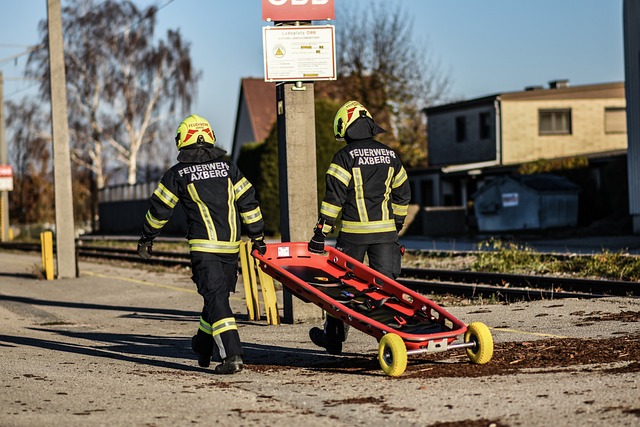Workplace wrongful death claims require thorough investigations focusing on employment-related factors causing fatal injuries or illnesses. Key elements involve gathering evidence like witness statements, safety protocols, and medical records, while investigating circumstances such as exposure to harmful substances or defective products. Employers have a legal obligation to disclose relevant information, including job duties, working conditions, safety protocols, and accident history, ensuring transparency and fairness in the justice system. Failure to disclose can result in severe penalties, emphasizing the importance of skilled legal representation and proactive disclosure management strategies for employers.
In the event of a workplace wrongful death, understanding what employers must disclose is paramount for families left behind and legal proceedings. This article navigates the intricate landscape of workplace wrongful death cases, highlighting critical disclosures employers are legally obligated to make. By exploring these requirements, we aim to equip both victims’ families and professionals with knowledge, fostering a more transparent and just process in the face of tragedy.
- Understanding Workplace Wrongful Death Cases
- Key Disclosures Employers Must Make
- Legal Implications and Best Practices
Understanding Workplace Wrongful Death Cases

Workplace wrongful death cases arise when an employee’s fatal injury or illness is caused by factors related to their employment, including unsafe working conditions, defective products, or the negligence of a coworker or supervisor. These cases are complex and often involve extensive investigations to determine liability. Understanding the nuances of these cases is crucial for both employers and employees alike, as it can significantly impact the outcome and compensation.
In workplace wrongful death claims, evidence pertaining to the incident, such as witness statements, safety protocols, and medical records, plays a pivotal role. Additionally, investigating the circumstances surrounding the accident or exposure to harmful substances, like defective products or auto accident injuries, is essential. Employers must be prepared to disclose relevant information regarding training, safety measures in place, and any prior incidents or warnings related to the specific cause, whether it’s a defective product leading to car accident injuries or other workplace hazards.
Key Disclosures Employers Must Make

In cases of workplace wrongful death, employers have a legal obligation to disclose critical information that can significantly impact the outcome of such cases. These disclosures are essential for ensuring transparency and fairness in the justice system. Key among these are details about the employee’s job duties, working conditions, and any safety protocols or training provided. For instance, if an employee’s role involved high-risk tasks or exposure to hazardous materials, this information is crucial in determining liability and calculating injury compensation.
Additionally, employers must reveal any history of workplace accidents or incidents, as well as documentation of safety inspections and enforcement actions taken by regulatory bodies. These disclosures help uncover patterns or recurring issues that may have contributed to the wrongful death. Furthermore, in cases where there are partnership disagreements or real estate disputes—which can sometimes intersect with workplace wrongfully death claims—employers need to provide insights into business operations, decision-making processes, and any relevant policies or contracts that could shed light on the circumstances leading up to the incident.
Legal Implications and Best Practices

In the event of a workplace wrongful death, legal implications can be far-reaching and complex. Employers have a legal obligation to disclose specific information to ensure transparency and adherence to regulations. Failure to do so can lead to severe consequences, including substantial monetary damages and potential liability for negligence or intentional misconduct. A competent personal injury lawyer will scrutinize all details related to the incident, especially in cases involving elder abuse or nursing home abuse, to advocate for the rights of the deceased’s family.
Best practices for employers involve proactive disclosure management. This includes a clear and comprehensive policy on what information needs to be shared with the bereaved family and relevant authorities. Prompt notification of the incident, preservation of evidence, and an open dialogue with legal professionals can help navigate these sensitive cases effectively. Additionally, regular training sessions on workplace safety protocols and their legal implications can foster a culture of accountability, ensuring such incidents are addressed promptly and fairly.
In conclusion, understanding what employers must disclose in wrongful death cases involving the workplace is crucial for both legal integrity and employee justice. By adhering to key disclosures and best practices outlined in this article, employers can ensure transparency and mitigate potential legal implications. Promptly addressing these issues is essential to navigate the complexities of workplace wrongful death cases effectively.






